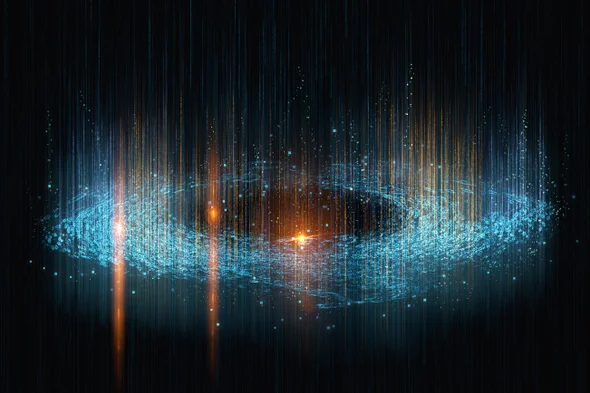Prepare to embark on a mind-bending journey that challenges our understanding of the universe and our place within it. Imagine a reality where everything we experience is not as it seems—a meticulously crafted simulation designed to deceive us. This is the simulation hypothesis, an idea that has captivated the minds of philosophers, scientists, and visionaries alike.
At the forefront of this concept is philosopher Nick Bostrom, who postulates that advanced civilizations with vast computing power could create simulations indistinguishable from reality. If this is the case, then it’s possible that our own existence is nothing more than lines of code, our lives mere characters in a cosmic simulation.
To explore the plausibility of this hypothesis, we can draw parallels between computer simulations and our universe. In video games, non-player characters (NPCs) and algorithms operate within the constraints of processing power. Similarly, if our universe is a simulation, it would also have limitations imposed by its computational hardware. This becomes evident when considering the speed of operations within a simulation. Just as a subtraction between two numbers takes the same time regardless of magnitude, our universe exhibits a similar artifact—the speed of light. This universal speed limit acts as a hardware constraint, hinting at the simulated nature of our reality.
But what about consciousness? Throughout history, the purpose and nature of consciousness have intrigued philosophers and scientists alike. In the context of the simulation hypothesis, consciousness serves as the subjective interface between ourselves and the simulated universe. It allows us to immerse ourselves in the simulation, akin to how video game characters experience their virtual worlds. Our consciousness generates subjective experiences, or qualia, within the simulation, while a more information-rich version may be projected to an external observer.
This notion challenges the boundaries between reality and illusion. We are qualia-generating machines, playing our roles in this grand simulation. The purpose of our existence becomes clear—to create an immersive and experiential reality for the benefit of an external observer. It raises profound questions about the true nature of our experiences and the purpose they serve.
The implications of the simulation hypothesis are profound and unsettling. If everything we perceive is a meticulously crafted deception, what can we trust? Are there glimpses of true reality that exist beyond the simulation? These questions push us to reevaluate our preconceptions and confront the ultimate conspiracy theory that our lives are part of an elaborate charade.
As you delve deeper into the world of the simulation hypothesis, you will find yourself questioning the nature of reality and the boundaries of human consciousness. This captivating exploration challenges our understanding of existence and invites us to embrace the mystery that lies beyond the simulation.
Prepare to be amazed, astounded, and captivated by the revelations that await you in the intriguing world of the simulation hypothesis. Join the quest to unravel the secrets of our reality and discover what lies beyond the coded veil. The journey may leave you with more questions than answers, but it is in the pursuit of knowledge and curiosity that we uncover the extraordinary.



